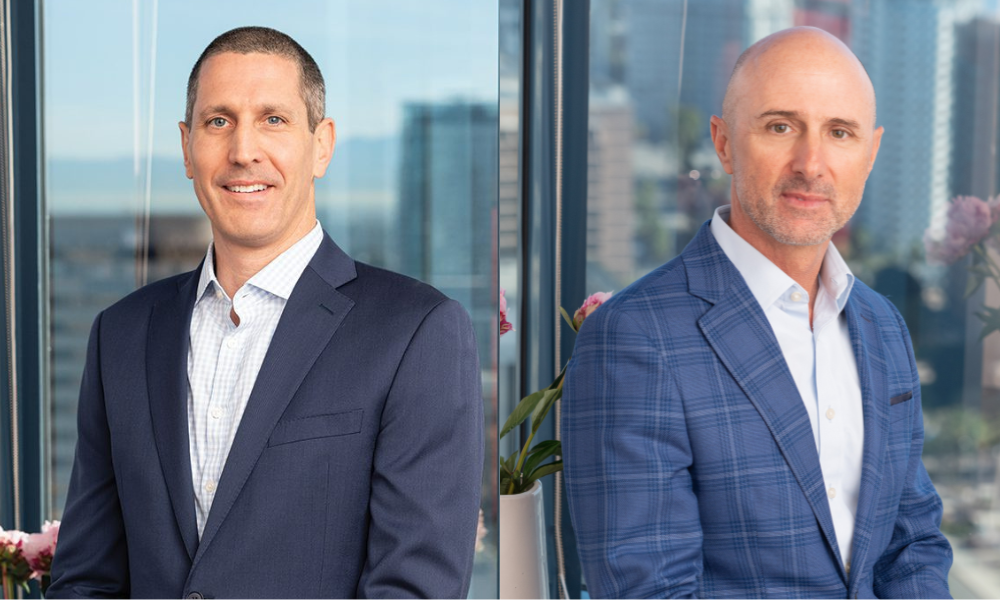

Talk to any advisory or investment firm across the country and they'll likely tell you the same thing: they're scrambling - and struggling - to identify effective strategies for recruiting and developing the next generation of advisors. Part of the issue can boil down to a firm's growth strategy.
When it comes to Halbert Hargrove's growth strategy, Brian Spinelli, co-chief investment officer at the Long Beach, California-based RIA, emphasizes organic expansion and employee ownership. They're over 100 percent employee-owned, with a long-term succession plan in place.
“We have not been looking at the private equity money,” he shares. “As few as outside shareholders, the better. We've decided to stay employee owned.”
Importance in company culture
The firm has traditionally avoided trying to consolidate with or be taken over by other firms, Spinelli notes, because it would go against the culture the firm’s founder, Russ Hill, built.
This focus on culture and continuity extends to the firm's approach to hiring and training the next generation of advisors.
“We continue to focus on building that next gen of advisors organically,” he says, highlighting the average advisor age at the firm is between 40 and-45.
At the core of the firm’s talent strategy is a robust internship program, the firm’s CEO JC Abusaid highlights. Rather than relying on short-term summer placements, the firm onboards 4-6 interns at a time, immersing them in substantive work and exposing them to all aspects of the business.
The internships are structured as longer-term commitments, allowing the firm to assess talent and build a pipeline of potential future hires.
Abusaid has observed a notable shift in the mindset of next-gen candidates. Whereas early on, many were hesitant about the path to becoming an advisor, today's applicants exude confidence and a clear vision.
"They don't see it as carrying a boulder up the hill," he says. "They see it as, 'Well, you guys did it, so of course I'm going to do it. How do I come on and do what I need to do to get there?'”
Abusaid affirms that firms who focus on culture, have a developed roadmap and are highly adaptable, willing to adjust timelines and goals based on evolving needs and priorities, will make them standout amongst other RIAs in the industry.
“It starts with culture,” he says. “If the firm’s culture is focused on people, that's all [prospective advisors] need to hear is that you really care and want to help them out.”
“That's what we do, we're dynamic,” he added. “If it doesn't work out, we change it. And people love that too about the firm. We adapt to the reality.”
Spinelli agrees, highlighting it’s been key to the firm’s retention rate.
“If people feel good at their job and they're happy and they're not feeling threatened, that’s where we get the retention.”
A strong investment strategy
Investment firms also face the challenge of guiding clients through turbulent times, especially during heightened market uncertainty. Halbert Hargrove is certainly no different.
Spinelli outlines Halbert Hargrove's primary clientele consists of high-net-worth individuals and families with $3-10 million in investable assets.
"They're not the ultra-high-net-worth," he notes, "but they're disciplined savers looking to make the right decisions in retirement."
A key focus for the firm is the "psychology of investing", he explains as, helping clients allocate assets appropriately and understand how their portfolio aligns with their long-term goals.
He points out this approach proved invaluable during the market volatility of 2020 through 2022.
"Most investors were calm," he recalls. "They'd just been through the mess of 2020 with markets coming apart. No one knew what was going to happen, and they stuck with it, knowing we'd get through this as well."
He points to the firm’s diversified investment strategy for this resilience.
“We don’t know what the future is going to bring,” he says.
With that said, what’s considered the best-case scenario for a cloudy future? “Diversify among a lot of asset classes,” he says.
“That means you're going to own equities. That means you're going to own some hybrid or quality assets that don't behave like stocks and bonds and you’re going to have risk reducing assets,” noting cash, alternative credit or normal bonds, as possible assets.
Spinelli also highlights another focus for the firm: their life phase portfolios. He explains the process involves identifying where a client's at in their investing life phase.
“[We have] people that are building and growing their wealth to those who are more in transition. They're not quite in retirement or spending, but they're older now and they don't have as much time. They have a lot of wealth, and they can't recover if it goes the wrong way,” he says.
Additionally, they also have clients who are in the decumulation or distributed employee phase, “so portfolios in each of those phases are going to look different,” Spinelli added.
Name: Brian Spinelli / JC Abusaid
Position: Co-CIO / CEO
Company: Halbert Hargrove Global Advisors
Founded: 1933
Firm AUM: Approximately $3 billion

Relationships are key to our business but advisors are often slow to engage in specific activities designed to foster them.

Whichever path you go down, act now while you're still in control.

Pro-bitcoin professionals, however, say the cryptocurrency has ushered in change.

“LPL has evolved significantly over the last decade and still wants to scale up,” says one industry executive.

Survey findings from the Nationwide Retirement Institute offers pearls of planning wisdom from 60- to 65-year-olds, as well as insights into concerns.
Streamline your outreach with Aidentified's AI-driven solutions
This season’s market volatility: Positioning for rate relief, income growth and the AI rebound
